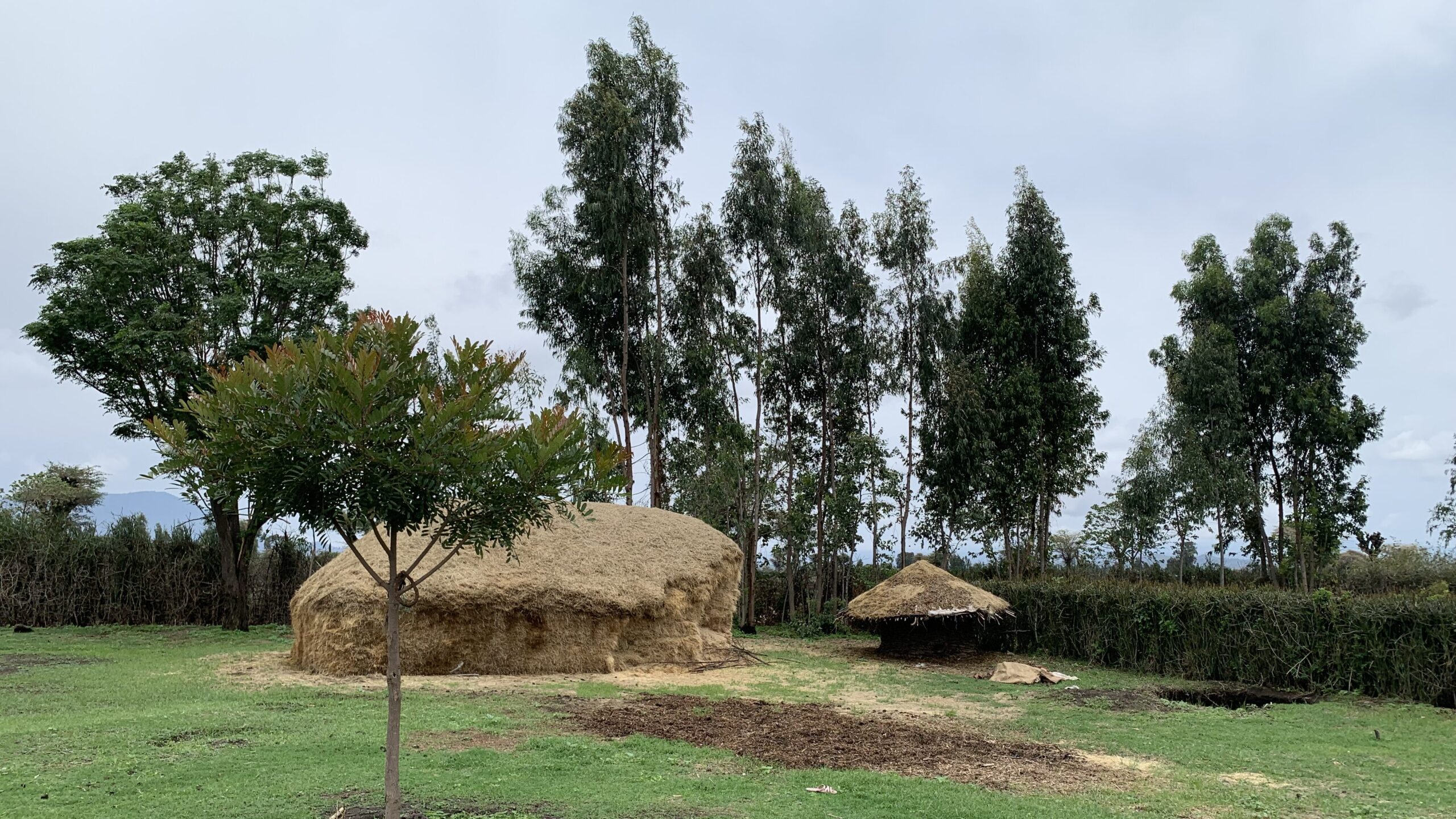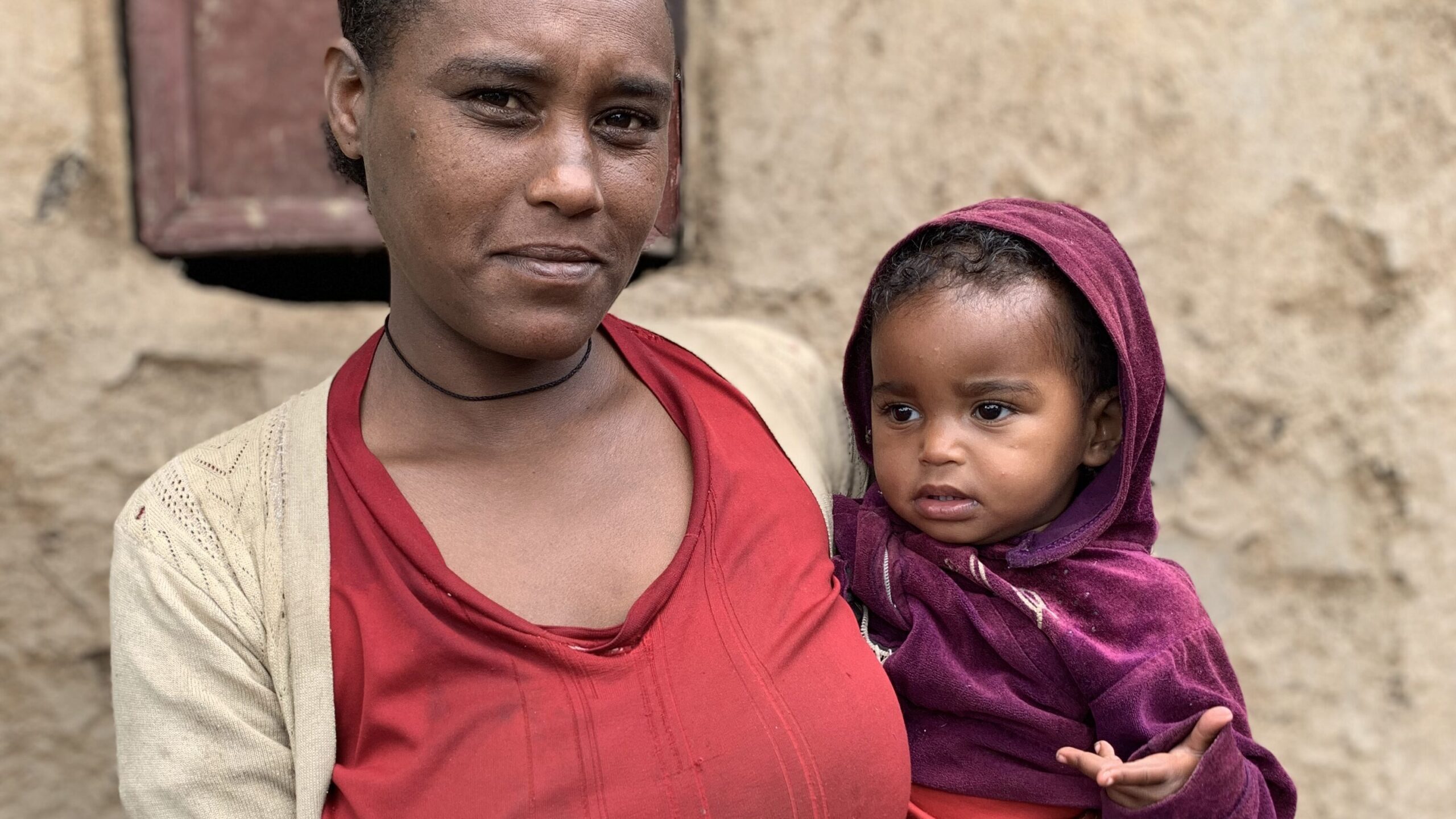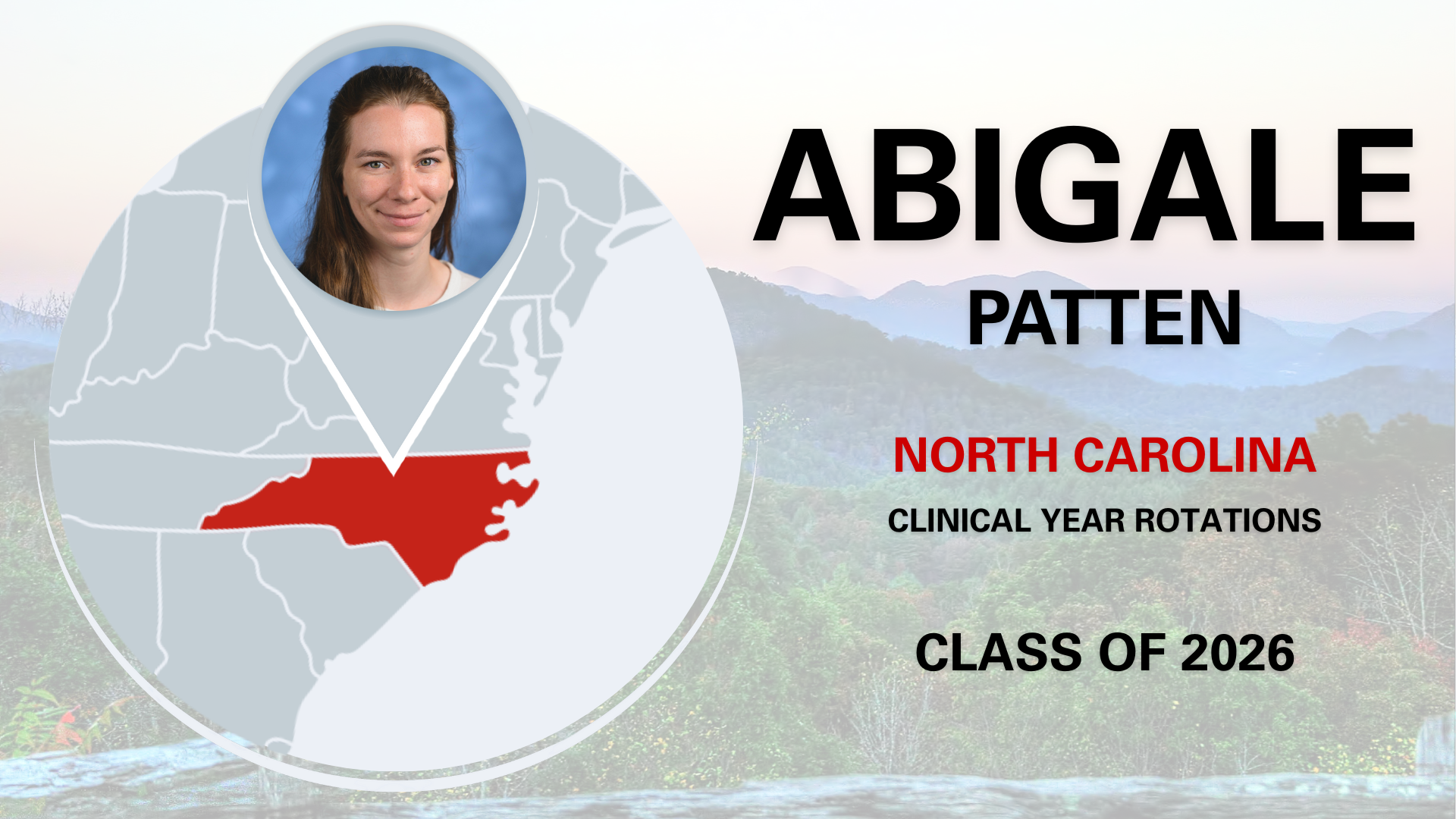Bolstering its work in global health, the NC State College of Veterinary Medicine has received its first USAID grant for a research project that could lead to healthier chickens and better nourished children in Ethiopia and to a model for how to address food insecurity elsewhere.
The interdisciplinary project, led by Andrew Stringer, assistant professor of Veterinary Global and Public Health, embodies the growing movement known as One Health to recognize the connection among the health of people, animals and the environment.
“This is a big deal,” says Sid Thakur, director of the college’s Global Health Program. “Dr. Stringer has been working on food safety and security in Ethiopia for a long time, and this is a testament to his efforts. The beauty of this grant is that it’s focused on an interdisciplinary effort, where people from different backgrounds work on problems that need a concerted effort. One person can’t do everything, so I’m really, really excited about this USAID grant.”
USAID is a federal agency that works to advance U.S. national security and economic prosperity, demonstrate American generosity and promote paths to self-reliance and resilience.
In addition to Stringer, Seifu Hagos of Addis Ababa University and Alemayehu Amare from the Ethiopian Institute of Agricultural Research are co-principal investigators on the grant. Collaborators include Stephanie Martin, an assistant professor of nutrition at the Gillings School of Global Public Health at the University of North Carolina at Chapel Hill; Zachary Brown, associate professor in the Department of Agricultural and Resource Economics at NC State; Jirata Shiferaw of Addis Ababa University College of Veterinary Medicine and Agriculture; and Sefinew Alemu of the University of Gondar.
The project, expected to last 18 months, has several components but one driving principle: Improving the health of animals ultimately improves the health of humans.
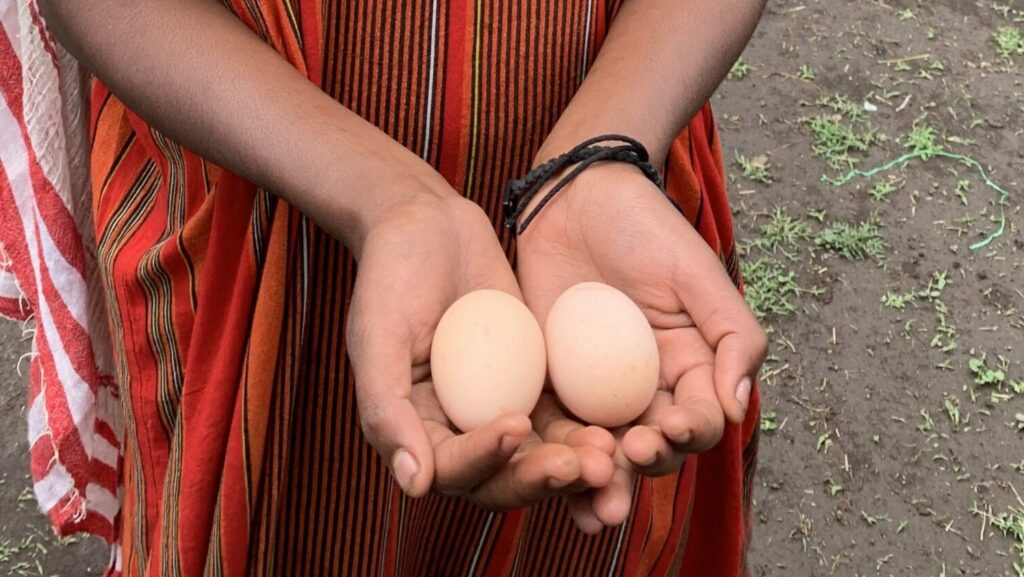
Stringer and his colleagues hope to train female “chicken champions” to provide poultry-owning households in Ethiopia with access to a vaccine for a common virus known as Newcastle Disease Virus. The vaccine, which is administered in an eye drop that doesn’t have to be refrigerated, would lead to fewer poultry deaths and increased egg production. The team also will study how best to encourage rural families to feed the additional nutrition-packed eggs to their children under age 2 to tackle growth-stunting malnourishment.
The USAID office says malnutrition contributes to more than 50 percent of all infant and child deaths in Ethiopia.
“First, we need chickens to stop dying,” says Stringer, whose Ph.D. from the University of Liverpool focused on evaluating how best to transfer animal health messages to rural farmers in Ethiopia. “And then we’ll move on to whether we can increase egg consumption. That’s why we have the partnership with the UNC Department of Nutrition and collaboration across institutions. Will the mothers do it? Will they feed the eggs to their children? What did they like and dislike? What’s the best way to do that?”
Stringer says he’ll use qualitative research approaches including focus groups and one-on-one interviews to explore how to reach the best outcomes.
“Global Health is a key program but a very young program, and two of our four years were affected by COVID. … CVM and NC State are already showing the world that we can make a difference.”
— Sid Thakur, director of the NC State CVM Global Health Program
Another hope is that the rural Ethiopian women who participate as community vaccinators can establish sustainable businesses, creating revenue that can be invested into more vaccines for wider delivery and generating income for the chicken champions.
The project will work within the existing poultry system and will not include giving chickens or eggs to families.
“So if all they have is five chickens, then we will work with that flock,” Stringer says. “We need this intervention to be sustainable.”
The project will include a Social and Behavior Change Communication intervention package to promote egg consumption in children under age 2. These interventions also will be delivered to rural Ethiopians by the chicken champions.
“An early project objective is understanding the cultural, economic, social and religious reasons that influence household egg consumption choices,” Stringer says. “Then we’ll know the best approach for designing a behavioral change package where we’re asking households to increase feeding children eggs.’”
The last 12 months of the project will be a cluster-randomized controlled trial. Some designated villages will receive both poultry health and the child nutrition interventions that explain the benefits of feeding eggs to children, some will receive only poultry interventions and control villages will receive nothing.
“Integrating a poultry health intervention program with a human nutrition intervention package can capitalize on these two issues, poultry mortality and child malnutrition, and provide benefits to both poultry and human health,” Stringer said in his application for the USAID grant. The project also could lead to strategic partnerships across academia and nongovernmental and governmental sectors and to private sector partners to support the scaling of any successful innovations.
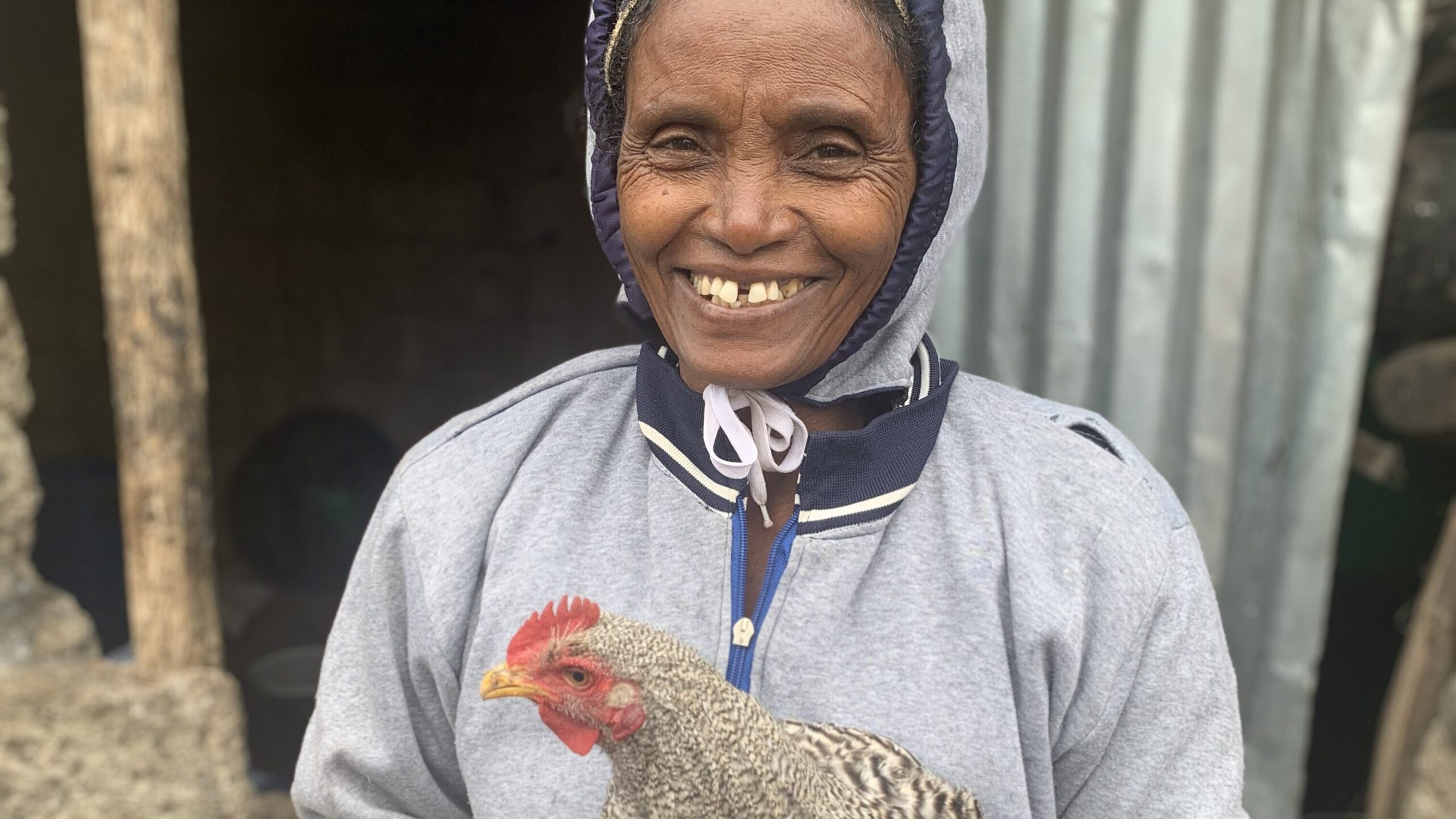
“If it works, households will have improved existing flocks of poultry, vaccinated chickens, and chicken champions will have a business, they can charge a fee for providing a vaccination service and reinvest it in more vaccines,” Stringer says. “That’s why USAID is interested because we can improve outcomes and create sustainable small businesses for these rural women and deliver that last-mile health to households. This project really is a testament to the One Health approach of tackling these challenges. Complex problems don’t have simple solutions.”
Under Thakur’s leadership, the NC State College of Veterinary Medicine combined its global health education and research programs into one Global Health Program in 2018. The college offers a formal Certificate in Global Health program for veterinary students that Stringer oversees.
“Global Health is a key program but a very young program, and two of our four years were affected by COVID,” Thakur says. “For a young program to see some grants getting funded, to be one of only 18 collaborating centers with the World Health Organization on One Health and antimicrobial resistance, to have all of the pathogen surveillance programs we have and the visiting scholars even in the midst of COVID, CVM and NC State are already showing the world that we can make a difference.”
